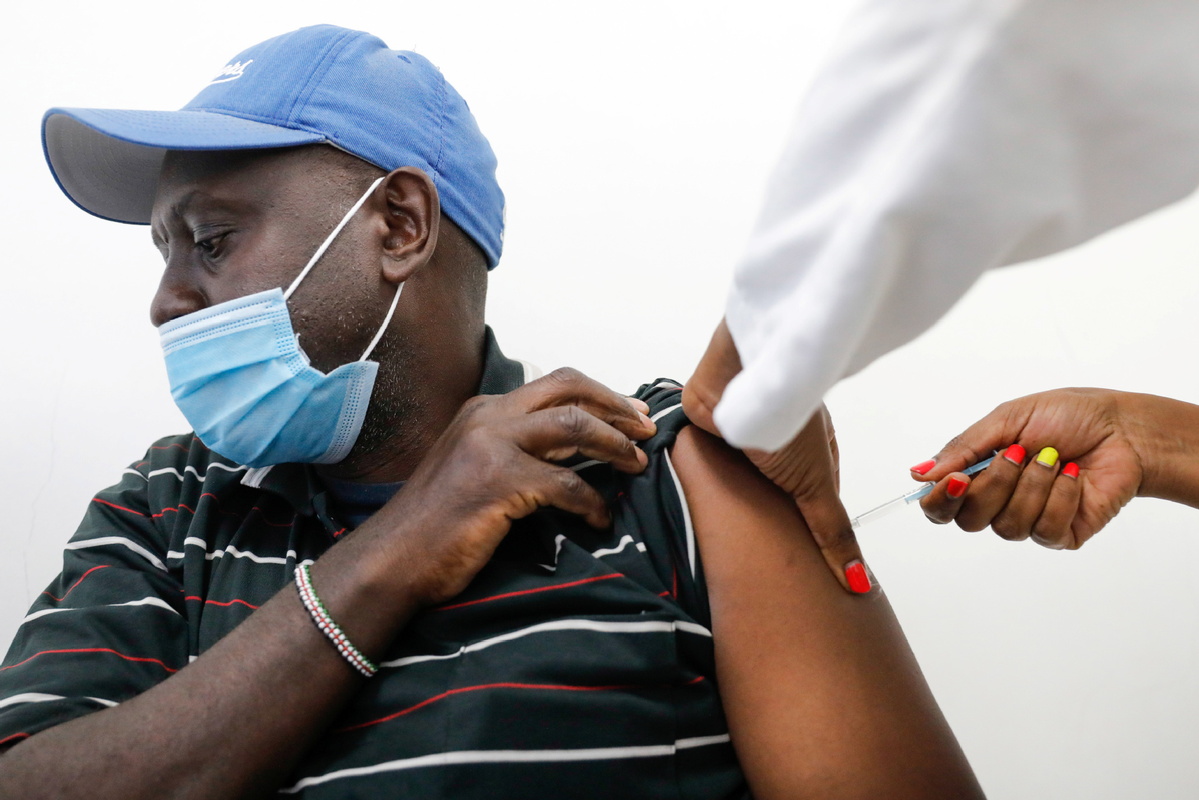Africa's vaccine rollout efforts get a boost


Africa's vaccine rollout efforts got a boost on Tuesday after the European Union pledged $120 million to support vaccination campaigns and ensure that no one is left behind, including people in hard-to-access humanitarian crisis settings.
Announced on Tuesday at a virtual press briefing, the initiative will support two complementary dimensions of the vaccination campaigns in Africa.
Of the funding, $30.1 million will support the rollout of the vaccination campaign in African countries, specifically capacity building of national health authorities and health care workers, as well as managing the information and coordination platform on vaccination.
The funds also will address critical logistical gaps, including equipment.
"This implementation at country and continental level will ensure better and independent monitoring of the rollout of the coronavirus vaccination campaigns across Africa, supporting Africa CDC's ongoing work," the EU said.
"From a long-term perspective, it also would seek to reinforce national health systems' resilience to address future epidemic outbreaks."
The second track of $78.2 million will support the rollout of vaccination campaigns in conflict and hard-to-reach areas, implemented through needs-specific activities, in close cooperation with various EU humanitarian partners.
"Humanitarian settings are usually delicate areas because they are hard-to-reach and are often neglected and not always included in the national vaccination campaigns," Janez Lenarcic, the European commissioner for crisis management, said during the news briefing.
A further $12 million in reserve will be allocated to any of the two tracks, as needed.
"This initiative will strengthen the relationship between the EU and the African Union. Our goal is to continue to work closely during this pandemic and beyond," Lenarcic said.
"I look forward to an even closer cooperation with the Africa CDC in the future to strengthen our readiness and efficient preparedness to respond together to the challenges of tomorrow," he said.
He said one of the key lessons from the coronavirus pandemic is the need for global cooperation.
"The pandemic is a global challenge. We have to defeat it on a global scale. The EU has demonstrated its solidarity in many respects with regard to this pandemic, including its financial contribution into the Covax facility and through export of vaccines produced in the European Union," Lenarcic said.
"Together with the Africa CDC we will be able to assist members of the African Union in rolling out their vaccination campaigns. This is part of what we see as a global approach, which is necessary in this situation."
Doctor John Nkengasong, the director of the Africa CDC, said the funding will play a key role in helping the rollout of the vaccines to member countries.
Nkengasong clarified that the funding will not be used to buy vaccines but it will help countries set up vaccination centers and rollout mechanisms.
"The breakdown of how much will go to each country will be based on their strategic plans. All countries have developed their strategic plans and once we engage the countries, we will look at the interface between our discussions with them and where they are in their vaccination plans and what needs they have," he said.
Nkengasong said while some countries are capable of rolling out their vaccination plans comfortably without a requirement for funding support, others will need tremendous support to get to where they have to be.
"The specificity of this program is very important, the humanitarian component is extremely valuable because it has to be tailored to meet the goals of the targeted nature of the funds," he said.
Nkengasong reassured Africans that vaccines for the emergency use from both the World Health Organization and the Africa CDC are safe and efficacious.
"Any medication that you take has a risk associated with it. For AstraZeneca vaccines, the data is clearly showing that if you vaccinate 1 million people, four people may come out with a blood clot. That represents a risk ratio of 0.0003 percent," he said.
































